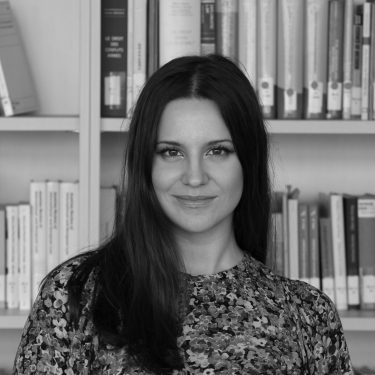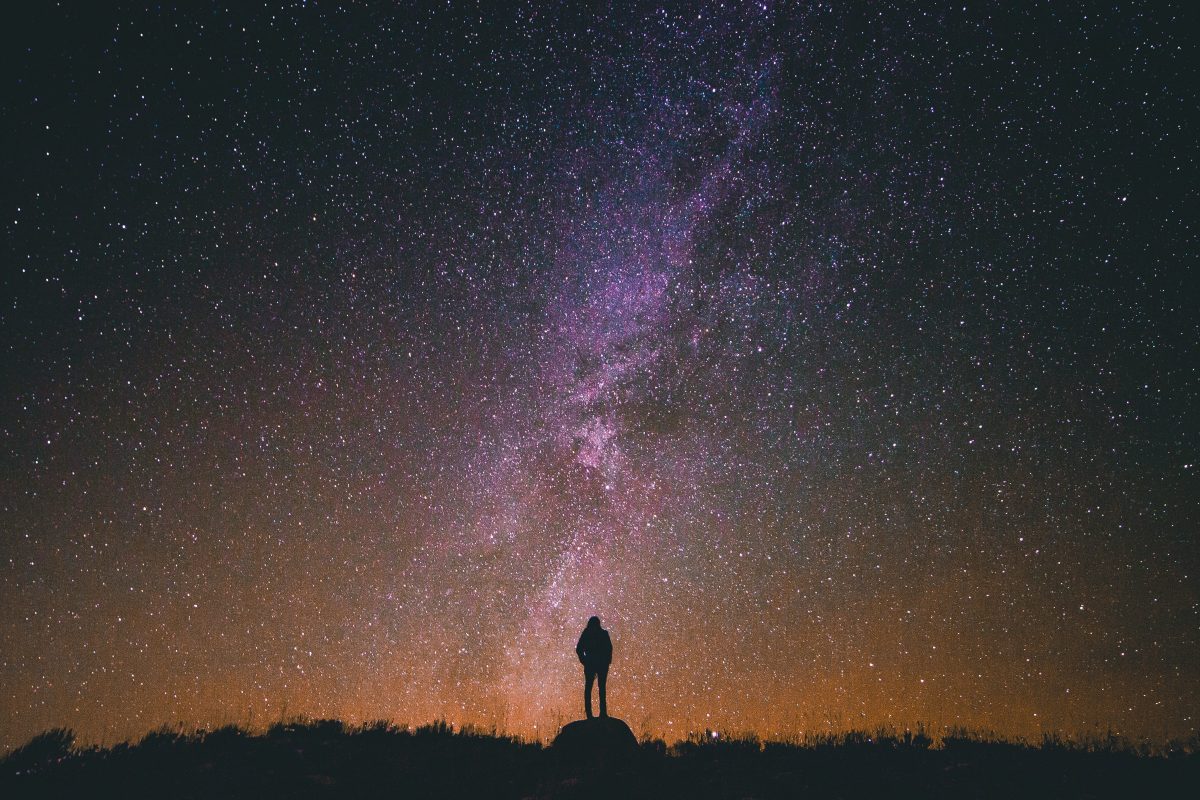Welcome to another interview of the Völkerrechtsblog’s symposium ‘The Person behind the Academic’! With us we have Dr. Satang Nabaneh, and through the following questions, we will try to get a glimpse of her interests, sources of inspiration and habits.
Welcome Dr. Nabaneh and thank you very much for accepting our invitation!
May I first ask what it was that brought you to academia and what made you stay?
My academic journey is a compelling story of firsts. I came to academia with a lot of hope and interest in learning. Since I have spent most of my time in activism starting from 8 years old, academia seemed a natural progression. Before completing the Bachelor of Laws (LL.B), I was accepted into the LL.M in Human Rights and Democratisation in Africa (HRDA) programme at the Centre for Human Rights, based at the University of Pretoria, South Africa, with a full scholarship. This was a dream come true as it was in line with my area of passion. I proceeded with my LL.M as the youngest in 2012. Upon graduation, I achieved some firsts: first alumna with an LL.M and the first alumna to be appointed as a Full-Time lecturer in the Faculty of Law at 23 years. Subsequently, I undertook a doctoral degree at the University of Pretoria, becoming the first and youngest Gambian woman to earn a Doctor of Laws (LL.D). Again, as the Faculty of Law’s first alumna to bag a law doctorate.
I stayed in academia because I hope that my scholarship, teaching, and activism reflect on and build the intellectual tradition as a mode of public engagement, thereby making an indelible mark for The Gambia and beyond. I hope my (modest) trailblazing academic story and work blaze trails for future generations. As a proud African feminist scholar-activist, I am a strong believer in trying to bridge the worlds of theory and practice. My feminist work, through activism, action-oriented research, and equitable knowledge production on diverse issues as part of ongoing collective efforts, is broadly geared towards challenging gender and other intersecting inequalities.
If you were not an academic, what would you be?
If I could snap my fingers and have any job in the world, I’d love to be a travel photographer, own a bookstore, or maybe be an actress. Growing up, I loved acting and participated in many competitions for the Voice of the Young, a children’s rights organization.
What was it that raised your research interest in sexual and reproductive health and rights in Africa?
I was born and raised in a predominantly Muslim society in The Gambia, where sexual and reproductive health and rights issues are not necessarily addressed in public, particularly abortion, which is highly restricted. While religion plays an instrumental role in my life, I identify as a feminist with strong pro-choice views with a dedicated record of advocacy for bodily autonomy, sexual and reproductive health and rights, and gender equality throughout my life. This has fuelled my interest in co-convening the Sexual Reproductive Rights Network, hosted by Think Young Women, a young women-led feminist organisation I co-founded in The Gambia.
Because of my longstanding desire to contribute to advancing reproductive and social justice, I have advocated for and conducted research to uncover how laws, politics, and socio-cultural and institutional factors affect sexual health and rights in Africa. At the University of Pretoria, I carried out socio-legal feminist research for my doctoral thesis titled “Power dynamics in the provision of legal abortion: a feminist perspective on nurses and conscientious objection in South Africa.” I have also managed various academic projects on human rights, gender, and sexual and reproductive health and rights. I was responsible for providing technical support to the African Union’s Special Rapporteur on the Rights of Women in Africa, advocating for the implementation of the Maputo Protocol, and training African governments and civil society on the African human rights systems.
At the international, regional, and national levels, my activism and research have been distinctly focused on interrogating and developing insights into political and legal determinants as part of a broader discourse on sexual and reproductive rights related to the African region and beyond.
Which three pieces would you encourage people who are in support of (near) absolute abortion bans to read?
This is not just a plug for my work. I’d HIGHLY suggest reading these three:
- Satang Nabaneh, The Status of Women’s Reproductive Rights in Africa, Völkerrechtsblog, 09.03.2022, doi: 10.17176/20220309-120935-0.
- Satang Nabaneh, ‘The Gambia’s Political Transition to Democracy: Is Abortion Reform Possible?’ (December 2019) 21(2) Health and Human Rights Journal 167-179.
- Satang Nabaneh, ‘Abortion and ‘conscientious objection’ in South Africa: The need for regulation’ in E Durojaye, G Mirugi-Mukundi & C Ngwena (eds) Advancing Sexual and Reproductive Health and Rights in Africa: Constraints and Opportunities (Routledge, 2021) 16-34.
Could you share with us three books/authors that have had a major impact on your perception of justice?
I would like to draw on Sara Ahmed’s “killjoy survival kit,” which includes texts that have agency in one’s life and propel you forward. For me, the books, not all strictly legal, that impacted me are So Long A Letter by Mariama Ba, Audre Lorde’s Sister Outsider, and Fareda Banda’s Women, Law and Human Rights: An African Perspective.
Do you believe that religion has had an impact on your perception of justice?
My perception of justice has been primarily influenced by the environment I grew up in, a society where inequalities remain high. Children and women constantly experience or have experienced violence and discrimination in society perpetuated by patriarchy and misogyny. In many ways, misogynist views based on tradition and culture are misattributed to religion, whether Islam, Christianity, or other forms of African religions. I realised at a very early age that violence and discrimination against women and children were alarming, wrong, and unacceptable. I also intensely disliked how corruption and bad governance affected the people in the community who were as poor as I was. My awakening led me to study law after high school to fight against discrimination through the use of law as a tool for justice and dignity and amplify the voices of those who are most vulnerable and marginalised.
Who would you say is one person that you look up to?
I’d say my mum is one person I look up to. Her tenacity and exemplary character are truly worthy of admiration and emulation. She is kind, an incredible human being, and a role model for my siblings and me. I think my mum’s love for humankind shaped and influenced my desire to empower and help people. She just has so much love to give. She also understood that the key to freedom for her children was education. My academic achievements are much of my mother too. I wish I was half the woman she is.
What is your favourite place to read and write? What is always near you when you read and write?
Ideally, I would love to read and write at the beach, right in front of the ocean. It’s peaceful and serene. But in the absence of that luxury, I love to read everywhere. On the plane, in lounges during transit, just anywhere quiet. I’d enjoy writing in my study with a cup of coffee or tea beside me and music on.
What is an energy and inspiration booster, at times when you have none?
My energy booster is watching a show or movie on Netflix or listening to music, engaging in animated discussions with my husband and 10-year-old son, and playing with my 2-year-old daughter. Their optimism and ardent desire to change the world for the better give me the courage to trudge on even when I am down.
Which was the most recent concert that you attended? Which type of music do you enjoy the most?
The last concert I attended was before the Covid-19 pandemic, which was by Sauti Sol, a Kenyan acoustic band – amazing! I am obsessed with Afrobeats and the South African Ampiano genre. I genuinely believe that music is inextricably woven into our traditions and communities.
Have you experienced or witnessed discrimination in academic circles? What do you think would help lessen and erase discriminatory instances in academic circles?
In reality, black people, particularly black women, are woefully under-represented in academic circles. There is biased social networking that excludes some minorities and young people from professional relations and convenings. As scholars, we must confront our own institution’s ideologies and be aware of how we represent and reproduce those ideologies and powers. Universities generate and convey knowledge, so there is a need to open such spaces historically restricted to privileged access. As noted elsewhere, we must prioritise epistemic justice or what we might call ‘knowledge justice’ by recognising the beliefs, voices, and experiences of those who do not call these spaces ‘home.’
As someone who entered academia very young, I’ve experienced discrimination, sexism, mansplaining, and sexual harassment. Urgent responsive action is needed to address significant gender and racial bias, discrimination, and harassment that women in academia are constantly experiencing. A crucial part of that is refocusing the resources of academia to advance social justice and racial equity.
Ideally, whom would you want to find waiting for a meeting with you outside your office next Monday?
I’d love to meet my tribe– the kind of people who will show up for me with a few questions asked. My life has truly been affected by my friends around the world. It’s a small but very impactful and resourceful group, and I could rely on them for everything. Our shared value, passion, and interest in advancing human rights, mainly women’s and girls’ rights, make every meeting with them meaningful and resourceful. It is how we ask more of ourselves. They also exude friendship, goodwill, joy, and love, so I’d absolutely love to find them waiting to meet with me outside my office next Monday!
What are you working on currently? What may we anticipate in the near future?
I intentionally engage in work that stays true to my intellectual pursuits and my communities. So, I am currently finishing my thesis-to-book project, Revisiting Conscientious Objection in Abortion Care: Framing the Global Debate with Lessons from South Africa. I am incredibly excited about the book, which aims to provide insights into how the law is shaped and shapes social practices, particularly as it relates to the invocation of conscientious objection and its use as a political tool.
I am also editing a collected volume that challenges hegemonic epistemologies and expands critical discourses on the use of the law and criminalisation to eradicate Female Genital Mutilation (FGM) in the continent and beyond. Other work I am focused on is as a co-convener of the Sexual and Reproductive Rights Network, hosted by Think Young Women, a young women-led feminist organisation I co-founded in The Gambia. The SRRNetwork is a Gambian movement-building initiative to advance sexual and reproductive health and rights.
I fervently believe that our work (teaching, scholarship, and activism) needs to affirm that our various disciplines can be used as a tool for social change and prioritise equity and inclusion, thus adding weighty significance to democratic and rights-based aspirations.
Thank you very much for participating in our symposium and for having taken the time to respond to our questions!

Dr Satang Nabaneh is a Gambian international law scholar and human rights practitioner. She is a Post-Doctoral Fellow at the University of Pretoria and a Research Affiliate at the Centre on Law and Social Transformation in Norway. She is also the Director of Program at the University of Dayton’s Human Rights Center. Her teaching, advocacy, and research focus includes sexual and reproductive health and rights in Africa.

